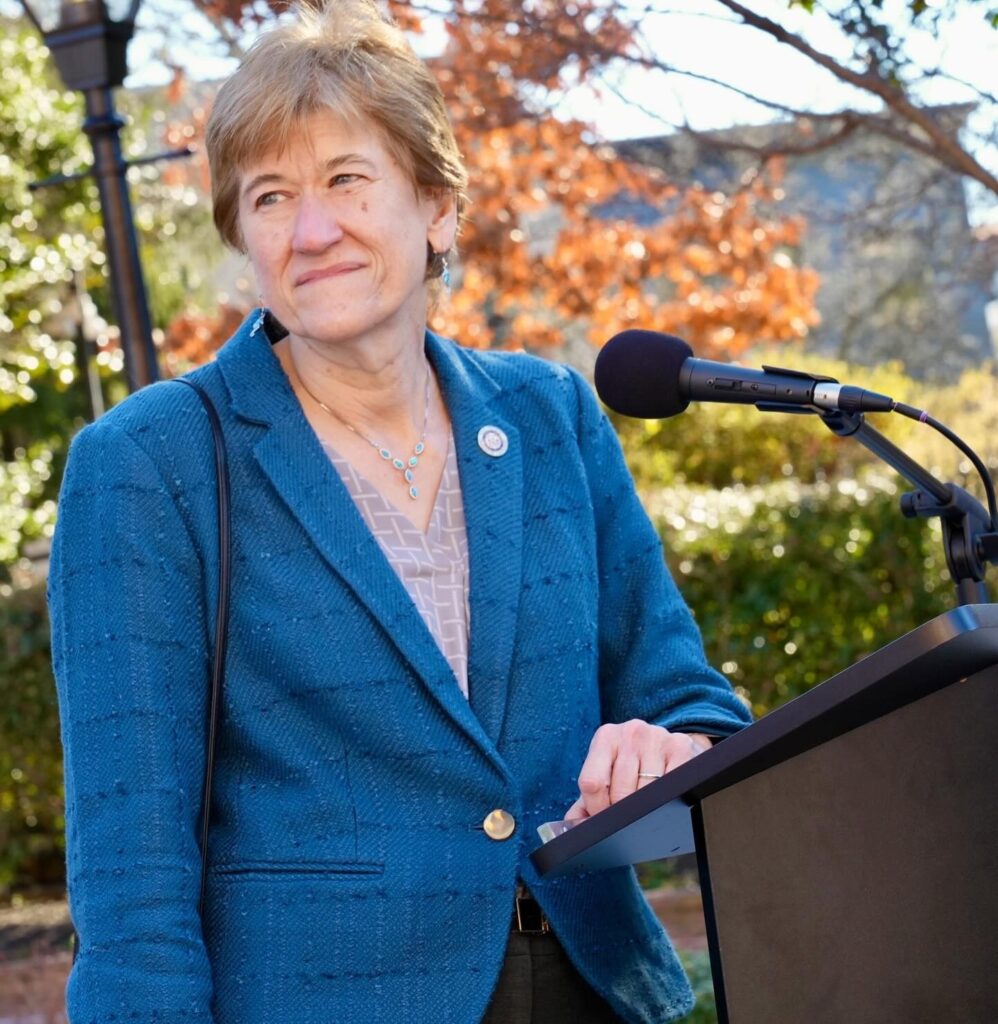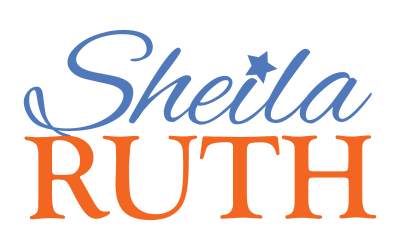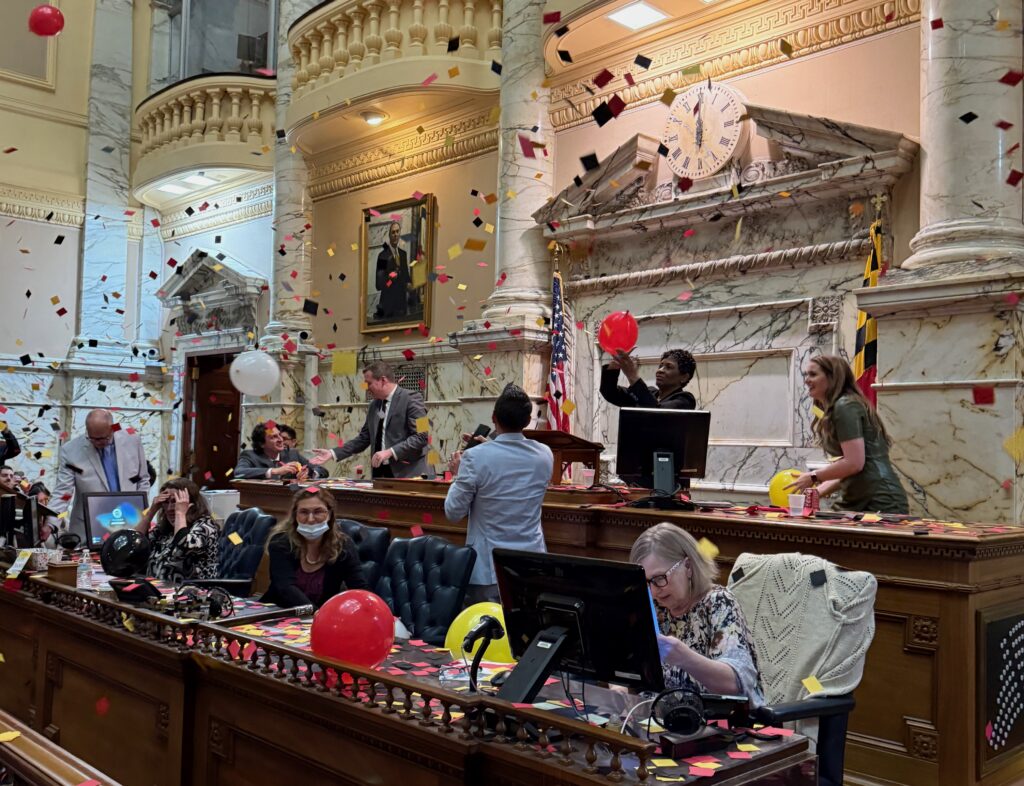
What an end to 2025’s legislative session – a long and stressful one, perhaps, but a fulfilling chance to represent my constituents in our state’s capital. I’m proud to say that these months of hard work paid off as three of my bills passed the full General Assembly and will be sent to the Governor for him to decide whether to sign them into law, allow them to become law without his signature, or veto them.
I’ve been working for you and all Marylanders in my positions as a member of the House Environment and Transportation (ENT) Committee as well as Environment (ENV) and Natural Resources, Agriculture, and Open Space (NRAG) Subcommittees since 2020, and a Deputy Majority Whip and one of Maryland’s representatives in the Chesapeake Bay Commission since last year, but I’m also a part of several Caucuses: the Maryland Legislative Latino Caucus, Women Legislators of Maryland, and Maryland Transit Caucus since 2020, and now the newly formed LGBTQ+ Caucus as of this year. Given the unprecedented attacks on human rights, this year more than any other during my time in the General Assembly it was crucial to support their priorities – the right to choose is being undermined nationally, draconian policies and actions threaten all immigrants regardless of legal status, and the safety and the fundamental personhood of transgender people across the nation is under attack.
Meanwhile, budget woes have also been putting transportation funding at risk, which as you know is a focal topic of mine, and I worked in committee and with the Transit Caucus to ensure funding for public transit and transportation generally. My bill, the Transportation Funding Act of 2025 (HB0641), was just one small part of this effort. By allowing the Governor, in coordination with the Maryland Department of Transportation and the Department of Public Works, to raise revenue for the Transportation Trust Fund by submitting a proposed special property tax rate for different classes of property or geographic areas to the General Assembly, many badly needed and widely popular transportation projects that would provide benefits for communities in every county could have been funded. Transportation revenue needs to be raised in a fair, equitable, and adequate way that is tied to the needs of the communities impacted by these projects. Quality transportation, including robust public transit, is critical for Maryland’s current economic growth (and many other things). While this bill didn’t pass out of committee, I appreciated the additional $500 million in much needed transportation revenue in the final budget.
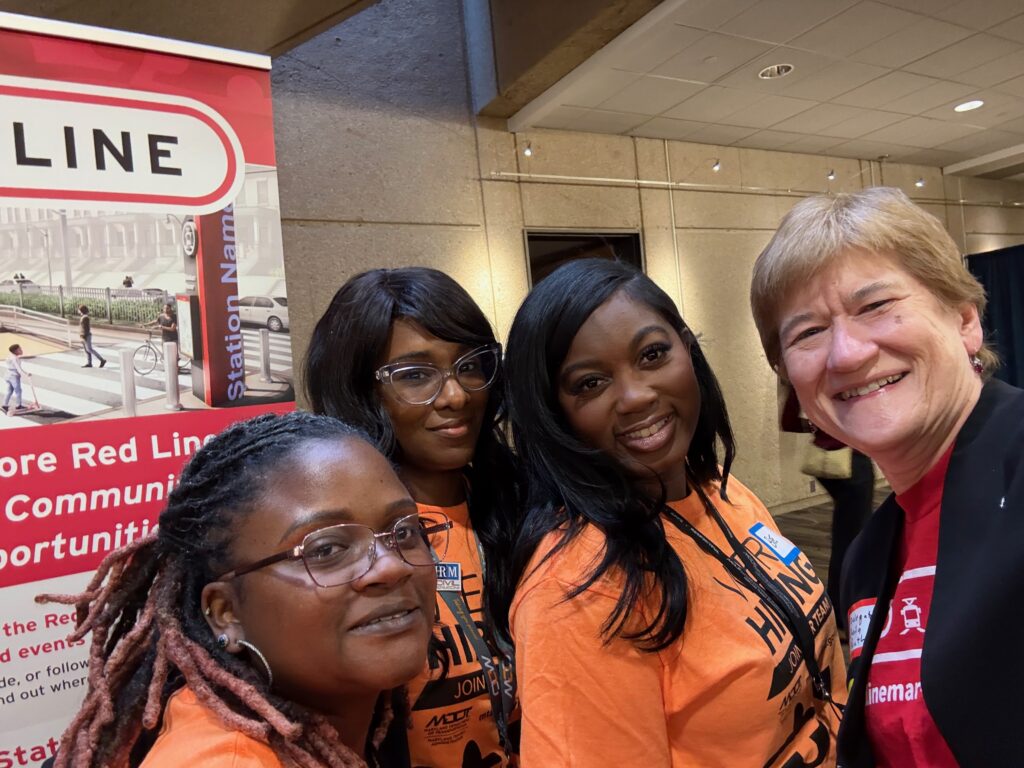
Climate and the Environment
Given my committee and subcommittee assignments – as well as my personal passions – it is likely no surprise that I introduced several environmentally-oriented pieces of legislation this year. I can happily say that some major ones passed the legislature for the Governor’s perusal! I was also able to make significant contributions to other environmental legislation in my committee.
I was excited to reintroduce Wildlife – Protections and Highway Crossings (HB0731/SB0635) with Senator Karen Lewis Young as its Senate sponsor, and am even more excited to report that HB0731 passed the legislature and is officially heading to the Governor, while SB0635 passed the Senate. This legislation marks a major step in protecting both Maryland’s wildlife and motorists, with over 33,000 animals struck by vehicles each year, resulting in more than $200 million in insurance costs. The proactive solutions in HB0731 lay the groundwork for creating roadway crossings that reconnect fragmented wildlife habitats and reduce the frequency of animal-vehicle collisions and similar initiatives in, for example, Virginia have seen promising results. This bill creates the Maryland Connectivity Coalition under the Department of Natural Resources and State Highway Administration, which will include legislators, representatives from state and federal agencies and non-governmental organizations, and other stakeholders to make transparent placement and funding decisions. HB0731 provides a strong foundation for creating safer roads and environments for Marylanders, human and animal alike.
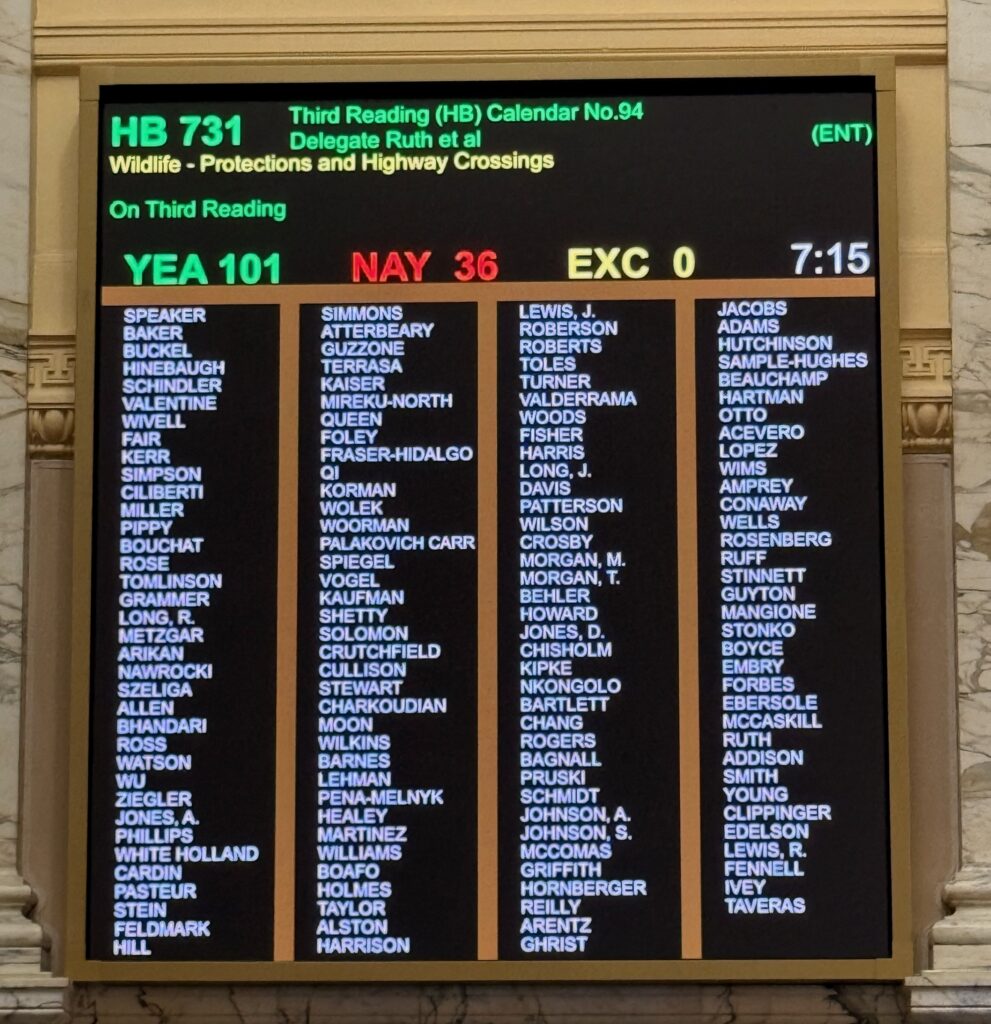
Another wildlife-related bill I introduced this year along with Senator William Folden as its Senate sponsor was Natural Resources – Wildlife Damage Prevention and Reimbursement Fund – Establishment (HB1511/SB0736). For years I have heard many stories from our farmers about how much deer and wildlife eat into their crops, and it is a statewide issue that causes extensive damage to our state’s agriculture production. Under this legislation, farmers, landowners, local governments, and others could have been reimbursed for up to $5,000, not only covering for damage already caused, but also to help with prevention measures. Unfortunately, neither bill was able to get out of committee this session, but I remain committed to working with our farmers to help with this very important issue.
I also reintroduced Property Tax Credit – Retail Service Station Conversions (HB0341/SB0344) with Senator Benjamin Brooks as its Senate sponsor. This bill aimed to support the remediation and redevelopment of abandoned gas stations. These sites reduce local property values and our communities consider them a blight. The costs of removing underground storage tanks and environmental remediation are high, creating a large barrier for business owners to transition these gas stations into a more beneficial use. The bill would have authorized counties and municipalities to provide property tax credits to business owners to transform these unusable eyesores into community assets. This initiative is timely as Maryland continues to shift away from gas-powered vehicles and the demand for gasoline declines. While HB0341 did not advance out of committee this session, SB0344 passed the Senate, and I will continue to advocate for practical solutions like this in the sessions to come.
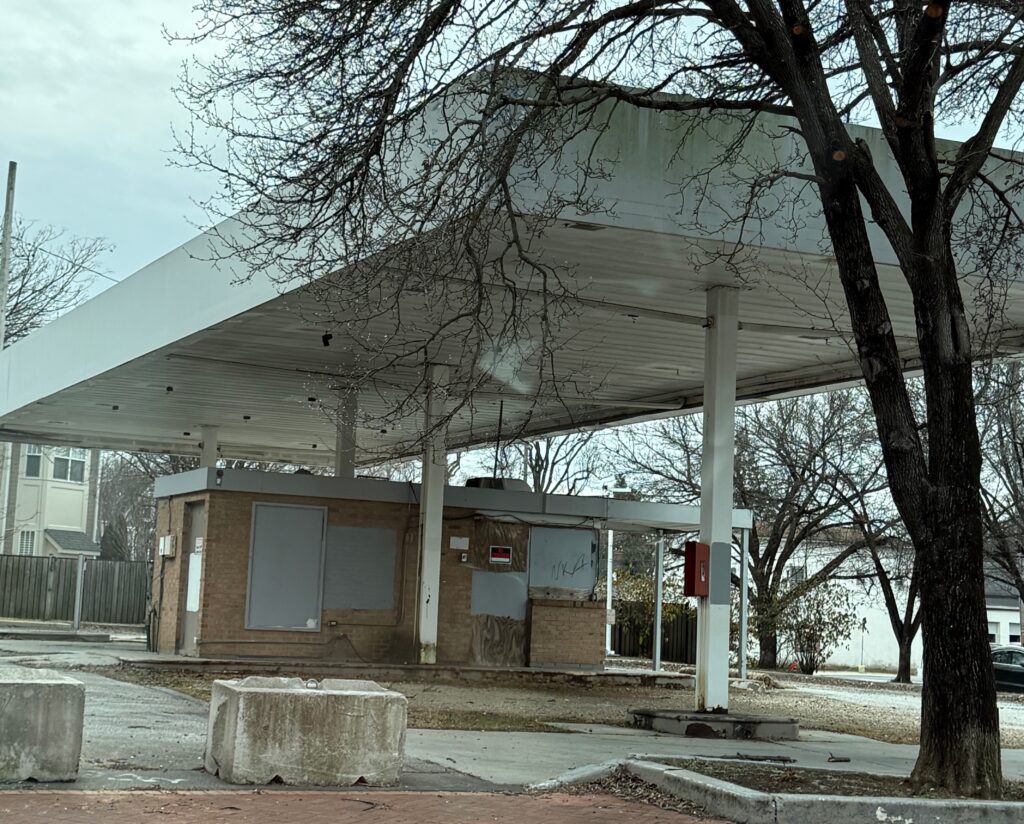
Another reintroduction after a year was Climate Change – Attorney General Actions, Climate Change Restitution Fund, and Climate Change Restitution Fund Advisory Council (HB0340) – albeit with some significant changes – which would have authorized Maryland’s Attorney General to prosecute big oil companies for knowingly contributing to climate change. Since 1968, the oil industry knew about their detrimental effects on the climate, yet actively deceived the general public to protect their profits. We’re already living through the damage that climate change is causing and Maryland taxpayers should not have to bear the burden of paying for them. The money received from a lawsuit would be placed in a Climate Restitution Fund, which would allocate aid to communities most vulnerable to environmental challenges, guided by a dedicated Advisory Council. Although HB0340 did not receive a committee vote, I remain committed to holding polluters accountable and fighting for a more just, resilient, and sustainable future for all Marylanders.
I’ve also been increasingly concerned about the proliferation of manmade PFAS chemicals in the environment. These chemicals are known as “forever chemicals” because they don’t break down: they accumulate in the environment and the human body causing serious health problems such as kidney and testicular cancer, liver problems, immune suppression, and thyroid disease. Pesticides – PFAS Chemicals – Prohibitions (HB0386/SB0345) and its Senate cross-file sponsored by Senator Benjamin Brooks, would have phased out PFAS chemicals that are listed as active ingredients in pesticides. HB0386 passed the House but with pesticide industry amendments that severely weakened the bill such that the advocates originally supporting it issued a press release in opposition to the amended bill. The biggest issue was the definition of which chemicals would be considered PFAS: the definition in the amended bill would greatly narrow the number of chemicals banned, such that it would have little effect in reducing PFAS in Maryland. The advocates’ main concern was that the narrowed definition would set a precedent that could impact other efforts to regulate PFAS in Maryland and other states. I appreciate the work that the Health and Government Operations committee put into trying to craft a compromise bill, but ultimately the advocates believed that the risk of harm from the amended definition to other PFAS regulatory efforts outweighed any small benefit, and the bill did not get a vote in the Senate.
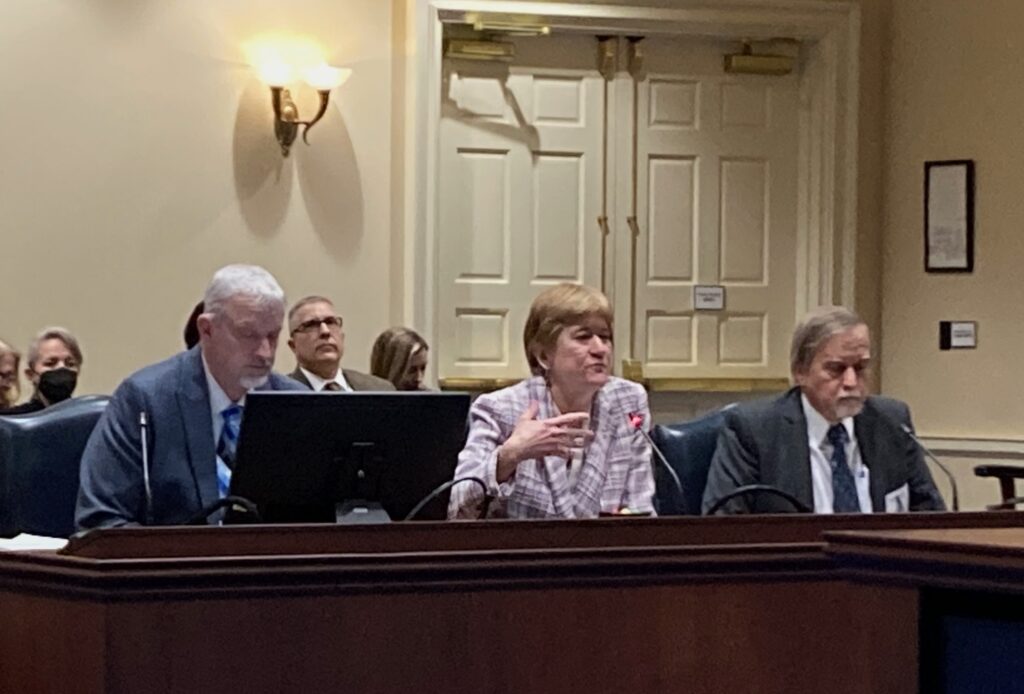
This year, I also worked significantly on the increasingly pressing topic of waste reduction in both my own legislation and on others’ as part of my committee work, including a bill of mine and its Senate equivalent sponsored by Senator Benjamin Brooks, that are being sent to the Governor’s desk: Environment – Water Bottle Filling Stations – Requirement (HB0277/SB0096), which require the installation of a water bottle refill station in certain newly constructed buildings. An additional requirement that was added this year is to install refilling stations during renovations where a water fountain is being replaced or a new water fountain is required by the plumbing code, with minor exceptions. Single-use plastic water bottles contribute heavily to plastic pollution, causing damage to us and our environment, and reusable water bottles are becoming a popular alternative. Research has shown that recycling is not an adequate solution, and more must be done to reduce the consumption of plastics. This bill was also supported by the American Heart Association because the wide availability of water is important to health.
I also introduced Sports Venues – Reusable Beverage Containers – Use During Sporting Events (HB0639), a bill that would have allowed attendees at sports venues to bring their own reusable beverage containers, provided they meet certain specifications. Maryland has made significant strides with regards to trash cleanup and becoming a greener state, though large events still produce thousands of pieces of garbage, much of it being from single use plastic bottles. This bill was based on one that passed in New York City where there haven’t been any documented security risks from the use of these bottles despite being home to some of the most well-attended arenas and stadiums in the country. While this bill received an unfavorable committee vote this session, I am looking forward to reintroducing it next year and working to get it passed.
I was proud to support and cosponsor other similar waste reduction bills this session, like the Maryland Beverage Container Recycling Refund and Litter Reduction Program (HB0232/SB0346) – commonly known as the “Bottle Bill” – which would have established a small refundable deposit on bottled beverages to incentivize the recycling of beverage containers (the House bill received a favorable vote by the Environment and Transportation Committee, but it never received a vote in its secondary committee Economic Matters, which stalled it in the House), as well as Mattress Stewardship Program – Establishment (HB0858) which passed the House and Environment – Packaging and Paper Products – Producer Responsibility Plans (SB0901) which fully passed. The Extended Producer Responsibility (EPR) program will allow for a more efficient system where local governments are not burdened with the responsibility of waste management, shifting responsibility to the producers themselves, and a Mattress Stewardship Program would have had the similar goal but specifically oriented towards the responsible disposal and recycling of mattresses, a particular financial strain for local governments and waste management services. I’m particularly grateful to have successfully amended SB0901 to preserve the possibility of enacting a bottle deposit return program in the future, which would advance the aims of reducing plastic pollution and waste.
Public Health and Safety
The well-being of Marylanders is of paramount importance to myself and my colleagues in the legislature, so it is no surprise that I worked on health and safety bills this year, some of which I have been championing for years.
There’s some exciting news ahead so be sure to read on. I’m pleased to report that my bill Commission on Behavioral Health Care Treatment and Access – Workgroups (HB1066) passed the legislature and will be sent to the Governor’s desk. It will create a dedicated workgroup within the existing Commission on Behavioral Health Care Treatment and Access focused on improving health, economic, and social outcomes related to substance use in Maryland – a massive epidemic that needs addressing – across the continuum of care. Evaluating the impact, cost, and efficacy of care within the criminal justice system compared to non-criminal justice involved care, including harm reduction, will be particularly emphasized.
This session I also continued my work to remove a vague, outdated, and harmful section of the Education code with Education – Prohibited Behavior on School Grounds and Property – Application (HB0627). Currently this section – which is disproportionately used against Black students and students with disabilities – allows Maryland children to be arrested, fined up to $2,500, and sentenced to up to six months in prison for committing inconsistently and subjectively defined “disruptions” in school – usually typical adolescent behavior such as storming out of class or talking back to a teacher. Criminal acts are already and will remain addressed by the Criminal code – non-criminal behavior by youth should not escalate to arrest, which can have a detrimental impact on the future of these children, leading to reduced graduation rates and future criminal activity. This bill, in similar forms, has passed the House three times and the Senate once already. While it did not pass out of committee, I remain hopeful for future sessions. This session it was amended by the Ways and Means Committee onto Education – Reportable Offenses and Prohibited Behavior on School Grounds – Alterations (HB1265), which passed the House but unfortunately stalled in the Senate.
I reintroduced Public Health – Commission on Universal Health Care (HB0417) this year, legislation with widespread support that represents my career-long focus on advancing health equity in our state. This bill would have established a commission composed of leaders in the public and private sectors of affected industries to study possible alternative forms of healthcare administration in Maryland, which would have then presented their findings and recommendations. Maryland’s current patchwork healthcare system is failing its residents, leading to some of the longest emergency wait times in the nation, as well as increased medical debt and diagnoses of chronic conditions. Marylanders deserve access to the healthcare they need without needing to go bankrupt to pay, and this commision would have looked into much needed potential ways to make this happen. While this bill didn’t make it out of committee, getting it passed remains a priority of mine in future sessions.
Other Bills
Not every bill fits neatly into a particular category, but that doesn’t make them any less important. I was able to reintroduce Ratifying the Federal Child Labor Amendment (HJ3/SJ1) this year, sponsored in the Senate by Senator Cory McCray, which would have made Maryland the next state to ratify the proposed Child Labor Amendment of the US Constitution, correcting a mistake made by this legislature nearly a century ago when we didn’t just fail to ratify it, we outright rejected it. Maryland voting to ratify this amendment would help stop the backslide of child labor protections we’re seeing around the country. Unfortunately both bills failed to get out of their committees, but it remains an important goal of mine for Maryland to keep children out of potentially dangerous work environments.
This session I again continued to push to bring ballot petitions into the 21st century with the Ballot Petition Modernization Act (HB0642). This bill contained measures to modernize and increase the accessibility of the ballot petition process for Marylanders, including allowing the electronic collection of signatures (which we already proved we could do during the COVID-19 pandemic), and for signers to use a derivative of their given name, fix signatures invalidated for minor mistakes, and attest to their own signing, as well as optional information on forms to be more clearly marked as such. Ballot petitions are a fundamental way for Marylanders to participate in the democratic process and are protected in our state’s Constitution. It is our job as elected officials to make that participation as accessible as possible to those who elected us. While this bill did not pass committee, I remain dedicated to strengthening Maryland’s democracy and look forward to continued work on this bill.
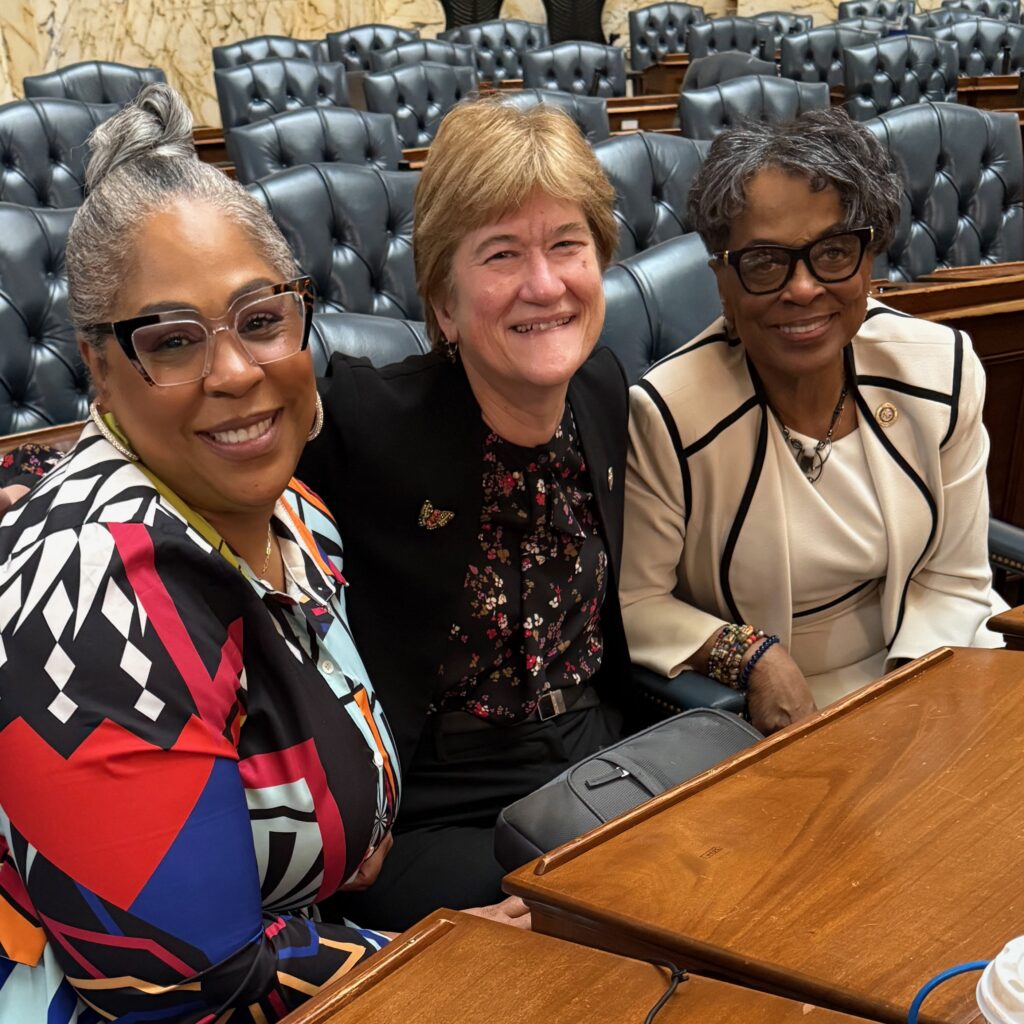
I also want to congratulate my fellow District 44B representative Delegate Aletheia McCaskill on the final passage of State Government – Maryland Reparations Commission (HB1422/SB0587), a bill that would create a Reparations Commission to study and make recommendations on appropriate benefits for those whose ancestors were enslaved in the State of Maryland. Similar commissions, task forces, workgroups, and studies have been established in other states and municipalities, with one already offering reparations and others recommending them. While the devastation of slavery can never be “made up for,” this bill is a step in not only recognizing the horrors of slavery in our state, but mitigating the harms and inequities of its lingering consequences.
Budget
The budget made the headlines a lot this session and was easily one of the most contentious aspects of the three month span. In fact, we’re supposed to pass a budget bill by March 31, but due to the hard deliberation (and debate) regarding where to increase and decrease spending and where to raise and lower taxes, the budget wasn’t passed until right on Sine Die – the very last day of session. The budget had been an issue before session started, but the new federal administration’s policies – especially the droves of layoffs of federal workers and freezing of federal grants that were promised to the state – has made it significantly worse. However, after all this effort, our budget preserves critical investments in our values despite the difficult decisions we needed to make regarding where and what to cut. Some positive things that came out of the Capital Budget this year is funding for important local projects to our community. Legislative Bond Initiatives I sponsored or co-sponsored helped give:
- $500,000 to the National Center on Institutions and Alternatives (NCIA) to improve and build residences, YIT School, a school auto training center, and a career development center.
- $100,000 to turn a vacant property in Woodlawn Village into a community cafe and gathering space called the Calico Cat Café.
- $600,000 to Southwest Visions Foundation to transform, in partnership with UMBC, the aging East Drive Shopping Center in Arbutus into a reinvigorated “main street” known as the Arbutus Marketplace.
- $150,000 to the Baltimore County Board of Education for the Edmondson Heights Elementary School facilities and playground.
- $50,000 to the Islamic Society of Baltimore for a wellness greenspace for all ages and abilities called Hope Garden at the Community Learning Center.
- $100,000 to the Christian Athletic Association for CAA Park, including an inclusive playground.
Additionally, $530,000 was allotted for a new stadium at UMBC.
Energy and Utilities
This session, energy was a priority issue for us, as we set out to protect constituents who are experiencing soaring utility bills, ensure the reliability of the electric grid, and continue to advance our transition to clean energy. In the end we passed a package of bills that provide short term relief to utility customers (ratepayers) as well as medium and long term protection and stability for them and our energy grid. The reasons for the soaring utility bills and other energy-related issues are multiple and complex, and this package of energy bills will go a long way towards addressing the many issues. Provisions of the legislation include a ban on utilities passing the cost of trade association memberships and private planes on to ratepayers and requiring utilities to justify using more expensive contract labor versus in-house labor and electric companies to establish a new rate schedule for large load customers (primarily data centers) to ensure that they pay their own costs for interconnecting to the electric and that residents in the State are adequately protected financially.
The Public Service Commission (PSC) will be required to open expedited solicitation for additional energy generation to replace the megawatt capacity that will be lost when the coal and oil-fired plants in the State close. They will also only be able to approve multi-year rate plans if the utility can show benefit, and utilities will not be able to file for reconciliation, a method of charging ratepayers for excess costs above what they submitted to the PSC. Multiyear rate plans have been a significant driver of higher costs, especially for BGE, and these restrictions should provide significant savings.
Similarly, investor-owned utility companies will need to justify replacement of gas lines as necessary for safety before recovering costs from the ratepayers under the STRIDE program, which allows them to recover costs for gas line replacement from the ratepayers with interest charged to the ratepayers amortized over decades. Currently BGE is engaged in mass replacement of all gas lines – whether they are needed or not – at a significant cost to ratepayers.
Additionally, $200 million in direct relief will be provided to Maryland ratepayers in the form of a credit to their bill twice in the upcoming year (at the summer and winter peak usage months), processes for the PSC to increase battery storage were put in place (which will increase the reliability of the electric grid as we increasingly transition to clean energy), and incineration will no longer qualify for renewable energy credits.
There aren’t enough sheets of paper in any office to truly discuss everything this session that deserves to be talked about, unfortunately, so I’ll close this with a genuine thank you for reaching out to me with your thoughts and a promise that I am already starting to plan my work for next year’s session. Thank you for the privilege of letting me represent you here in Annapolis. I’m already looking ahead to how I can best work for you next January, and I wish you a good interim.
All my very best,
Delegate Sheila Ruth
